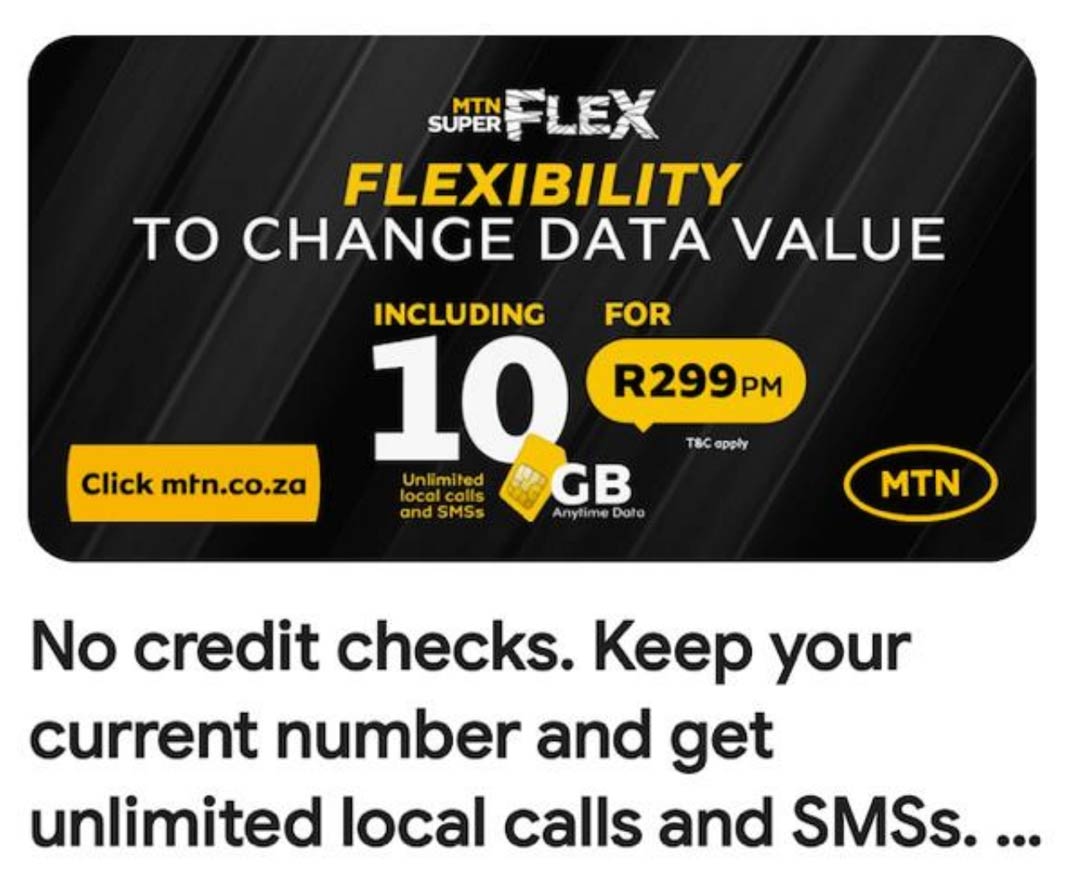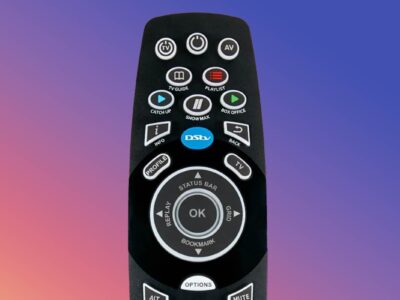
 The Advertising Regulatory Board (ARB) has censured MTN South Africa for a “misleading” claim that its SuperFlex plans offer unlimited voice calls.
The Advertising Regulatory Board (ARB) has censured MTN South Africa for a “misleading” claim that its SuperFlex plans offer unlimited voice calls.
The ruling follows a complaint by a SuperFlex user who claimed the product did not allow unlimited calls for personal use as advertised.
The ad appeared on social media, offering unlimited calls and SMSes, including 10GB of data, for R299/month. In its finding, the ARB said MTN’s use of the word “unlimited” was misleading.
Even if the consumer does read the terms and conditions, the limitation is not transparent
“The code [of advertising practice] states that advertisements should not contain any statement or visual presentation, which — directly or by implication, omission, ambiguity, inaccuracy, exaggerated claim or otherwise — is likely to mislead the consumer,” the ARB said in its ruling. “The directorate [of the ARB] notes that the advertisement refers to a product offering that includes ‘unlimited calls and SMSes’.”
The ARB acknowledged that MTN explains in its terms of services that an acceptable use policy applies to the SuperFlex products. The explanation goes as far as to say that the telecommunications operator does not allow calls for commercial uses on the SuperFlex plan and has an algorithm in place to monitor usage and warn customers who are in breach of the policy.
The ARB further acknowledged that the complainant’s call usage was “extremely high”, and said it appeared as though these calls were being made for commercial and not personal reasons. MTN sent messages to the complainant on three occasions to notify him that he was in breach of the terms and conditions. As a result of the repeated breach, the user was migrated to a prepaid package.
‘Sound business reasons’
“The directorate accepts that there are sound business reasons as to why the ‘unlimited’ offer is not available for business use. It also accepts that the complainant’s call time triggered the advertiser’s algorithms, whether reasonably or not. However, the directorate must consider the use of the word ‘unlimited’ in the advertisement,” the ARB said.
It said the word “unlimited” has a very clear meaning, and the terms and conditions of an offering cannot be used to alter the meaning of a word, only to clarify it. The ARB compared MTN’s statement that calls and SMSes are unlimited, along with the fine-print clarification that they are actually restricted, as akin to saying something is free only to later say a portion of it must be paid for. They are “two contradictory statements and therefore inherently misleading”.
Read: Melon Mobile latest to make voice calls ‘free’
The misuse of the word “unlimited” in advertising has been dealt with in prior cases, including Telkom Mobile Unlimited in 2016, Telkom Uncapped Internet in 2019 and another MTN-related matter in 2020. In each of these cases, where claims of unlimited packages were supplemented by fair-use policies that imposed some kind of limitation – such as the throttling the speed of the internet bundle – the ARB concluded that there should be no limitations where an “unlimited” claim has been made.
 The social media ad that caused the trouble
The social media ad that caused the trouble
In the MTN SuperFlex bundle case, the ARB said the use of the word unlimited is “further exacerbated” by three factors:
- The word “unlimited” is in no way highlighted as being qualified – by the use of an asterisk, for example. It is expressly noted that an asterisk would not necessarily address the issue, but it would have at least raised some awareness in the mind of the consumer that the word “unlimited” might be qualified;
- There is no qualifying wording, such as “unlimited personal calls and SMSes”, which would alert the consumer to some sort of limitation, although that might leave them wondering what was actually meant by “personal”. The problem would remain that by limiting the amount of calls a person may make, the advertiser is effectively limiting the “unlimited” package, and this would still be problematic. The advertising as it stands, however, does not give any indication that the package is not available for business use; and
- Even if the consumer does read the terms and conditions, the limitation is not transparent. It does not state something along the lines of: “Only the first 100 minutes on any given day are considered reasonable personal use.” Instead, it relies on a confidential algorithm that the consumer has no way of predicting.
MTN has been ordered by the ARB to amend or withdraw claims that its product offerings are unlimited where limitations apply.
“A consumer who is attracted to an ‘unlimited’ offering is likely to be a consumer who, for whatever reason, knows that their call volume is high. This might be because they use the device for work, or it might be because they have personal reasons to spend a lot of time on calls. Advertising therefore needs to be absolutely clear as to what is in fact offered, and what limitations apply,” said the ARB.
Asked for comment on the ruling, an MTN spokeswoman said the company “noted the ruling by the ARB and will review the recommendations provided by the regulator”. – © 2024 NewsCentral Media











Comments